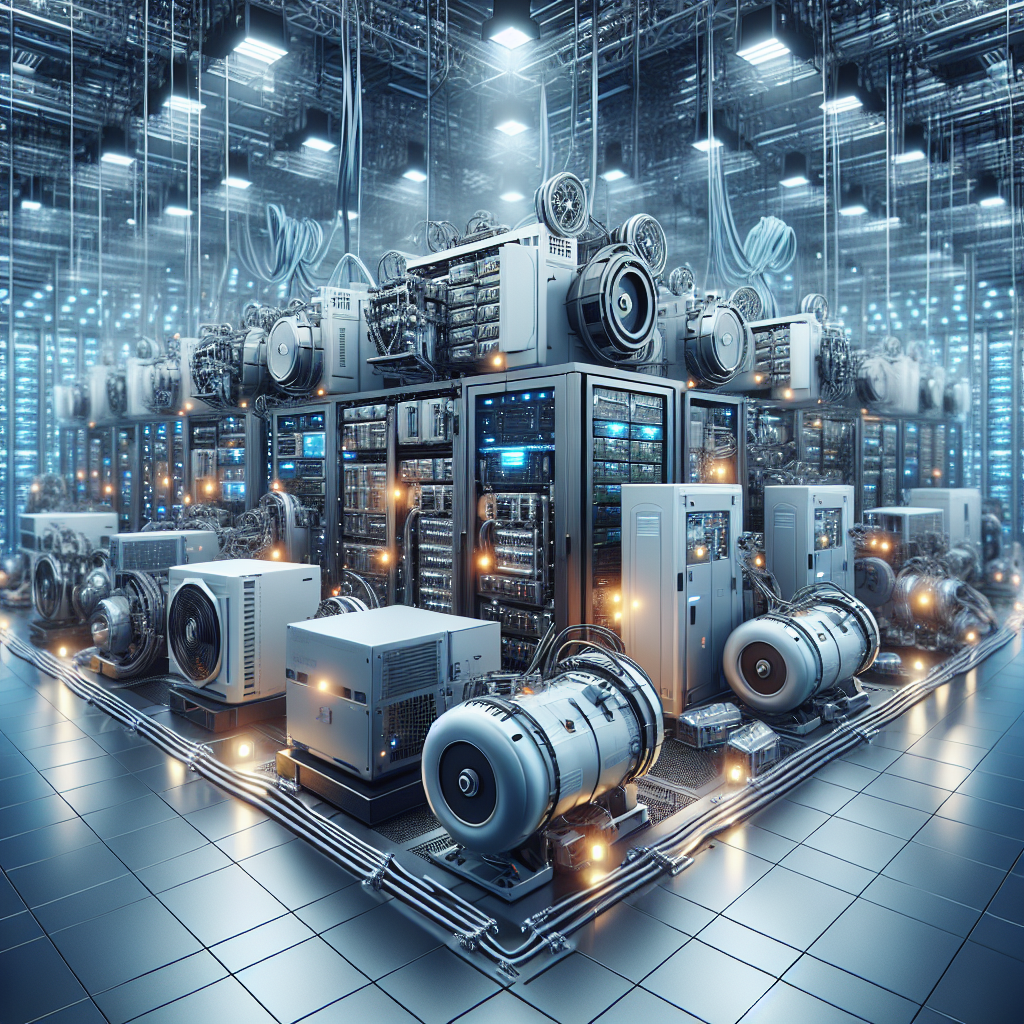Data centers are crucial facilities that house computer systems, servers, and networking equipment. These centers are responsible for storing, processing, and managing large amounts of data for various organizations. To ensure uninterrupted operation of these data centers, backup power solutions are essential. Generators are commonly used as backup power sources in data centers to provide electricity during power outages or emergencies.
There are several types of generators that are used in data centers, each with its own unique features and benefits. Let’s explore some of the different types of generators commonly used in data centers:
1. Diesel Generators: Diesel generators are one of the most common types of generators used in data centers. These generators run on diesel fuel and are known for their reliability and efficiency. They can provide a continuous source of power for an extended period of time, making them ideal for data centers that require uninterrupted power supply. Diesel generators are also cost-effective and easy to maintain, making them a popular choice for many data center operators.
2. Natural Gas Generators: Natural gas generators are another popular choice for data centers. These generators run on natural gas, which is a cleaner and more environmentally friendly fuel compared to diesel. Natural gas generators are also quieter and produce fewer emissions, making them a more sustainable option for data centers. Additionally, natural gas generators can be connected to a continuous fuel supply, eliminating the need for onsite fuel storage.
3. Propane Generators: Propane generators are similar to natural gas generators, but they run on propane gas instead. Propane generators are versatile and can be used in a variety of applications, including data centers. These generators are easy to install and maintain, and they can provide reliable backup power during emergencies.
4. Bi-Fuel Generators: Bi-fuel generators are a combination of diesel and natural gas generators. These generators can run on either diesel or natural gas, providing flexibility and efficiency for data centers. Bi-fuel generators offer the advantages of both diesel and natural gas generators, including reliability, cost-effectiveness, and sustainability.
5. Hybrid Generators: Hybrid generators combine two or more power sources, such as diesel, natural gas, solar, or wind power. These generators are designed to maximize efficiency and reduce fuel consumption. Hybrid generators are ideal for data centers that want to minimize their carbon footprint and reduce operating costs. Additionally, hybrid generators can provide a reliable source of backup power in case of emergencies.
In conclusion, generators play a critical role in ensuring the continuous operation of data centers. By exploring the different types of generators available, data center operators can choose the best backup power solution that meets their specific needs and requirements. Whether it’s a diesel, natural gas, propane, bi-fuel, or hybrid generator, having a reliable backup power source is essential for the smooth functioning of data centers.


Leave a Reply